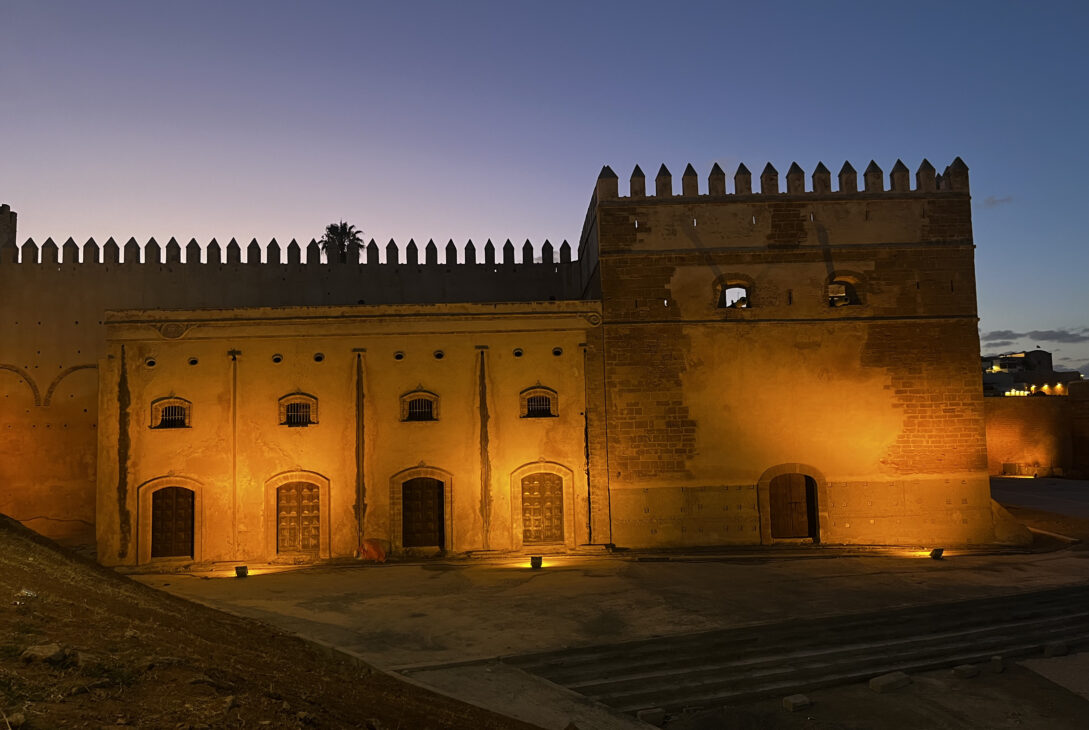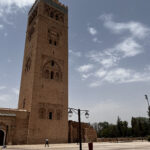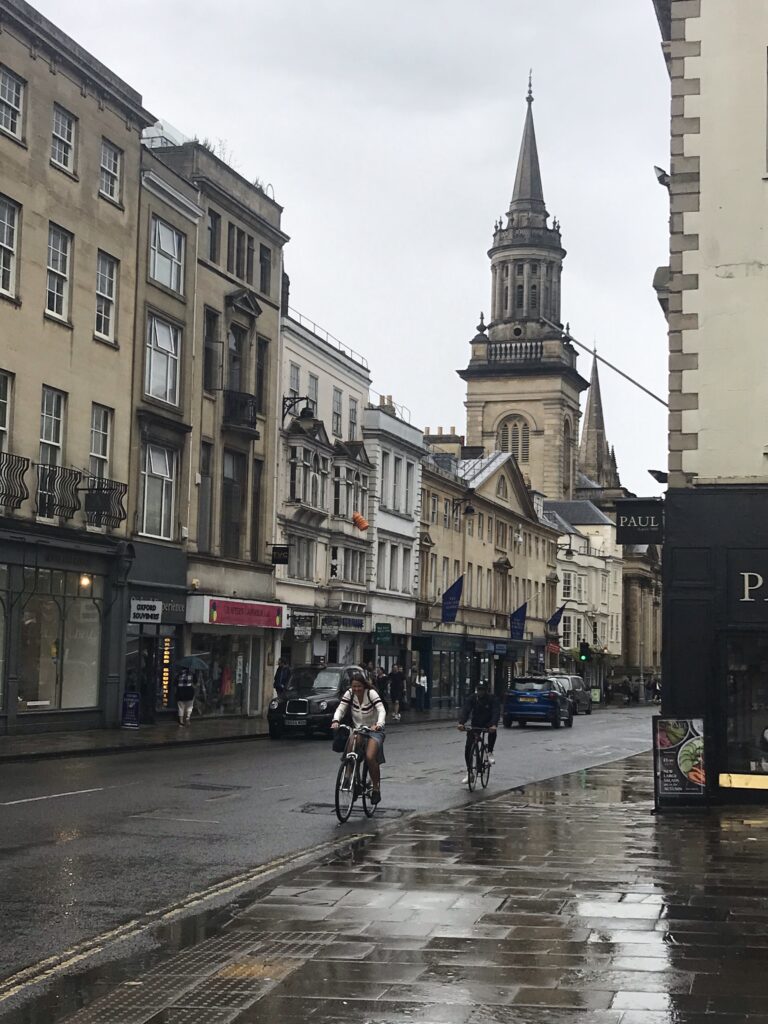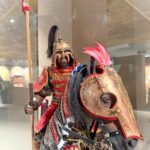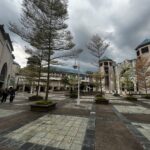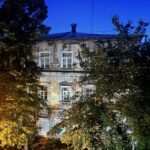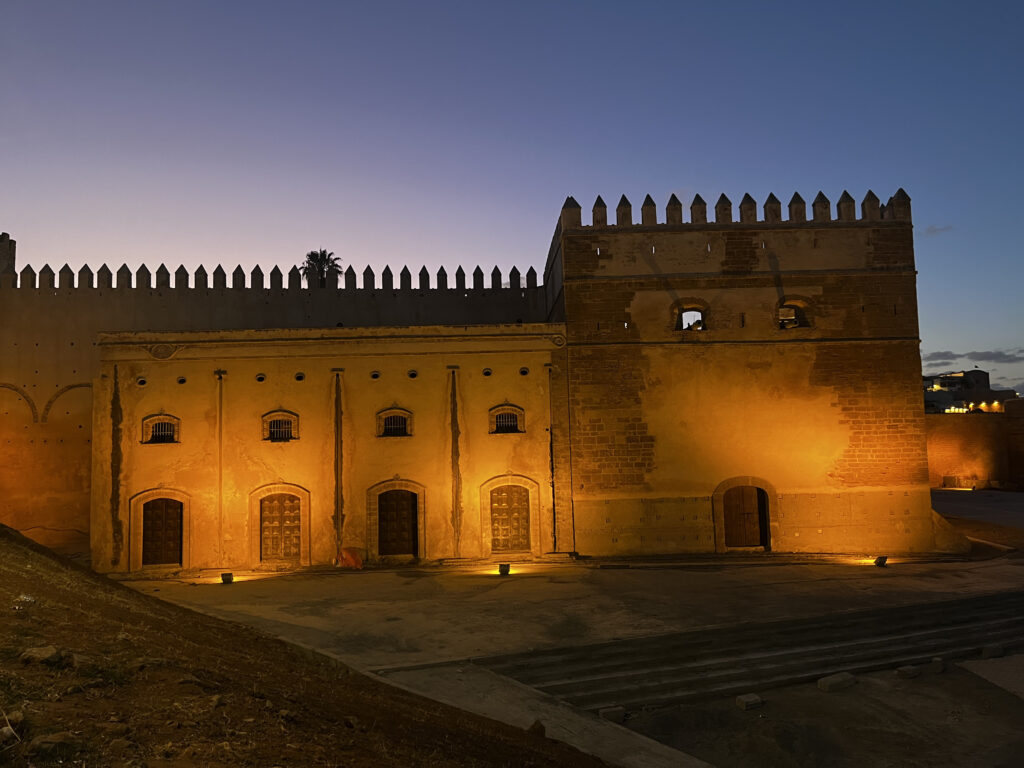
Fajr was early here (4:30 am) but my body’s still in Malaysian time (11:30 am) so I was wide awake. My host family was still quietly retreated in their rooms; and that meant breakfast’s still far away from the table. I reached for the stale bread and crumbling cupcakes from yesterday’s flight. That would do it for now. The sun has started to reveal the lifeline of Moroccans as I peeked out of the window. The summer breeze whipped my cheeks as a gesture to greet my arrival to this far away land. I had a few hours before someone came to show the way to the institute. A stack of old books piled by the bedside like they were there during the French Revolution; dusted, wasted. One of the books entitled “Moorish Spain” by Fletcher, R. (University of California Press, 1992) looked interesting. I’m always thrilled by the subject of Muslim Spain. The struggles, the powers and the mystical narrations of the Islamic world back then never failed to draw some magical conclusions of the circumstances. It read,
“A king of Spain in ancient time built a tower in which he deposited a secret. He sealed the tower with a mighty padlock and laid upon his successor the obligation each by turns to add an extra padlock so as to preserve ever more inviolable whatever was concealed within. Twenty-six kings came and went, respecting his wishes. Then there succeeded a rash and headstrong young king named Roderic. Resolved to penetrate the tower’s secret, and against the advice of all his counsellors, he had the twenty-seven padlocks opened. Then he entered the chamber within. On its walls were painted Arab horsemen, scimitars at their belts, spears brandished in their right hands…….There was an urn on the table, which was found to contain a scroll of parchment. When this was unrolled, the following words were revealed: “whenever this chamber is violated, and the spell contained in this urn is broken, the people painted on these walls will invade Spain, overthrow its kings and subdue the entire land. “
(Fletcher, Moorish Spain (p15)
So the legend goes. Roderic, eventually, was the last Visigoth King of Spain before Tariq and his army invaded the land in 712 ad.
Back to modern time, in Morocco, I was in day one on my linguistic endeavor. After a short walk we arrived at the centre where we will attend a class on local dialect called Darijah. I need this to get around the neighbourhood. The lesson went on for a few hours and Ustazah dived into the subject matter right away. We will have a four-hour session each day for 30 days. And today we had an assessment test to see the level of our competency in the language. But today the lesson would start with learning the local dialect.
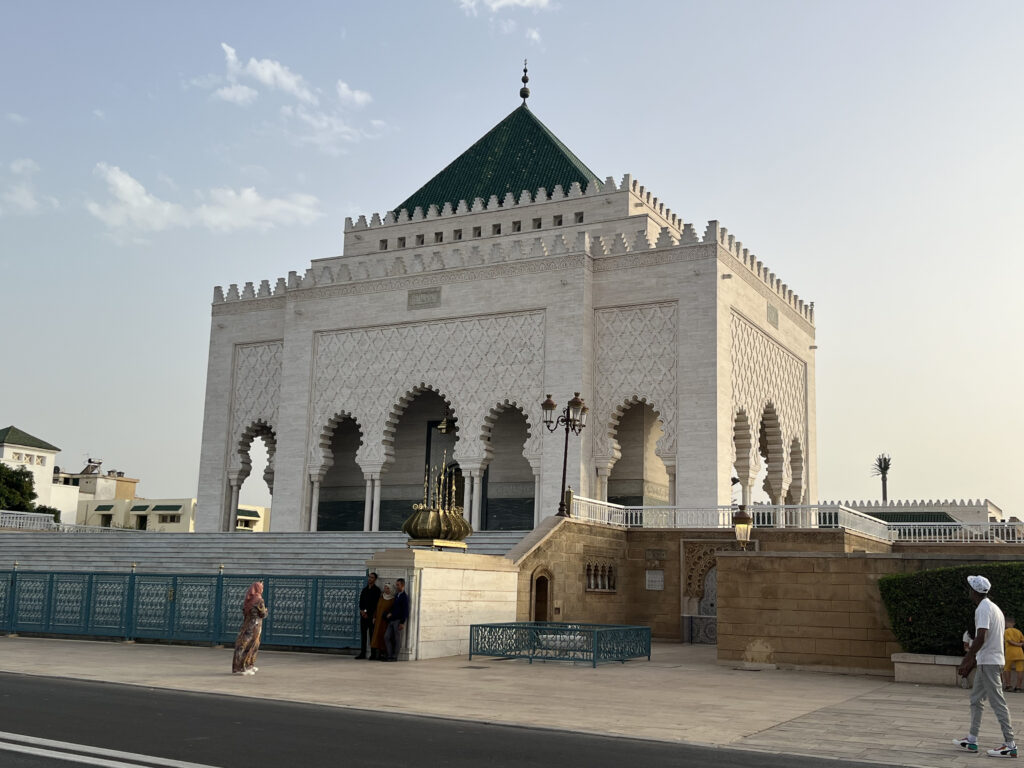
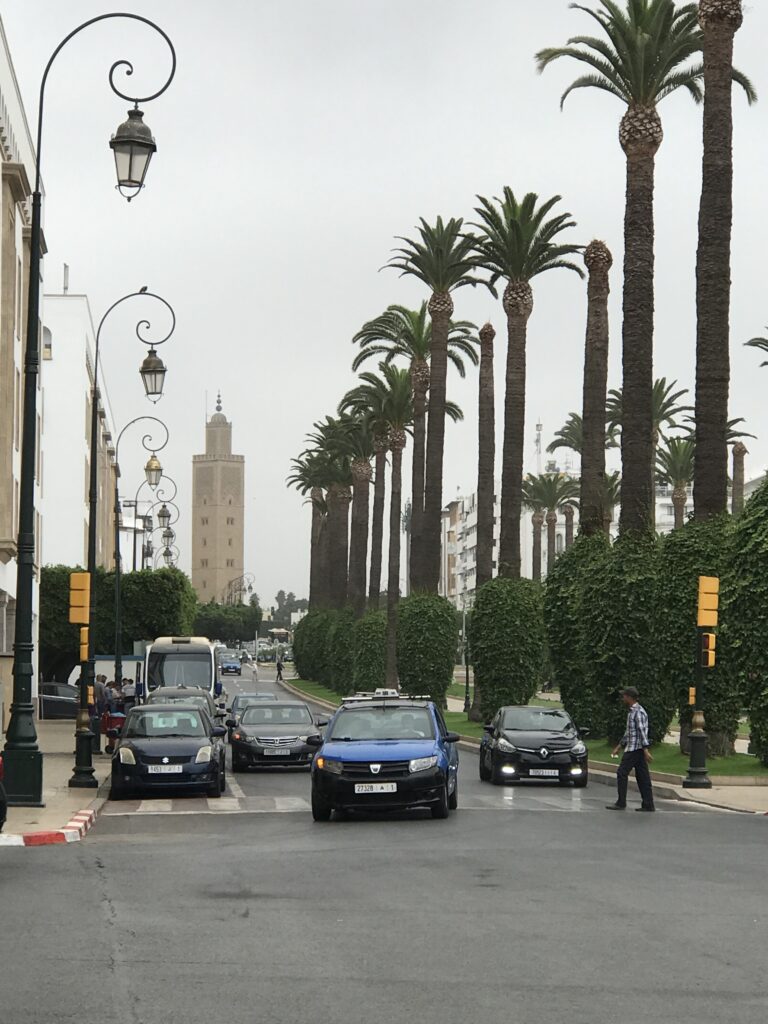
Friday prayers went on as expected. I was surprised on how the patrons behaved—they listened attentively, followed the sermon quietly and dispersed silently. The imam delivered the khutbah clearly and succinctly—not dragging the point unnecessarily until we fall asleep. He read the Qur’an perfectly. I felt so at home although my regular masjid was thousands of miles away. Indeed, Islam is global.
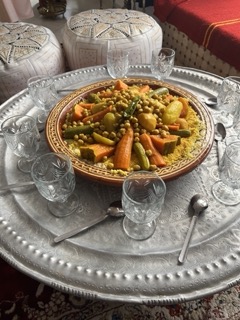
The lunch was a surprised couscous with chicken and vegies—a traditional dish they serve on Fridays. It was superbly delicious. I did not know couscous can be so filling and tasty. Everything was served in a big plate (the couscous, chicken, and vegies) on top of each other. We sat around the plate (8 of us) and dug in whenever you felt for it. The strange thing was that you didn’t need to eat much to be full. I withdrew after a short while.


